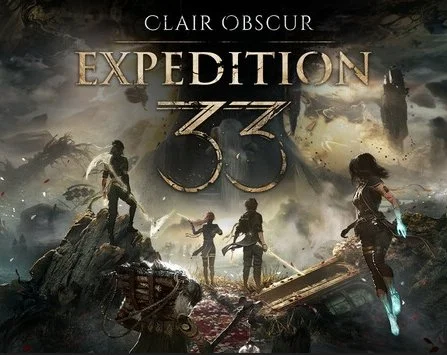What Your PC Says About You: A Look Into Personality Through PC Aesthetics
In the world of personal computers, specs often take the spotlight—but there's a subtler, more psychological layer hiding in plain sight: aesthetics. Whether you’ve built your PC from scratch or carefully chosen a prebuilt, the way it looks can say a lot about you. Are you all about RGB lights? Or do you prefer a sleek, all-black setup with no distractions? These choices aren’t just about performance or budget—they’re a form of self-expression.
In psychology, our belongings often act as extensions of ourselves. From the clothes we wear to the phones we carry, our stuff tells a story. And for those of us who live in front of a screen, a custom-built PC can be one of the most personal things we own.
So, what does your PC say about you?
The Psychology of Personal Tech
Psychologist Russell Belk once coined the term the extended self—the idea that our possessions become part of who we are. From keychains to cars to custom desktops, the things we own reflect how we see ourselves, how we want to be seen, and what we value.
There’s also the concept of self-concept: the mental image we have of ourselves. When we choose how something looks—be it clothes, tattoos, or tech—we’re shaping that image and sending signals about it to the world. Even our computers can become little personality billboards.
In a more abstract sense, for some, customizing a PC may even touch on self-actualization—that top level of Maslow’s hierarchy. In that view, tech becomes a tool not just for doing things, but for becoming the person you want to be.
PC Build Types & What They Might Say About You
Let’s dig into some of the most common PC aesthetics—and what they might reveal about the person behind the screen.
The RGB Gamer Build
The Look: Bright, colourful, sometimes bordering on neon. Think glowing fans, LED strips, and a case that proudly shows it all off.
The Vibe: Fun, bold, and performance-focused. The RGB setup isn’t shy—it wants to be seen. These PCs often belong to people who love gaming culture, streaming, or simply making a statement.
Psych Profile: Expressive, energetic, maybe even a bit status-conscious. There’s a drive to stand out, to entertain, and to stay on top of trends. It may also reflect a community-oriented mindset, where sharing your setup online is just as important as using it.
The Stealth/Minimalist Build
The Look: All black or monochrome. Clean lines. No lights. Every cable is tucked away. The opposite of flashy.
The Vibe: Quiet confidence. This build doesn’t shout—it whispers refinement. It’s about simplicity, focus, and precision.
Psych Profile: Likely introverted or detail-oriented. Someone who values calm and control. This builder might work in tech or design, and they probably have a well-organized desktop (physically and digitally). They don’t need to show off—they already know their worth.
The Productivity Powerhouse
The Look: Often modest, but high-spec. Multiple monitors, pro-level GPUs, maybe a drawing tablet or editing bay. Function over form.
The Vibe: No-nonsense. This is a workstation first, a flex second. Built to run 4K video edits, heavy simulations, or dozens of tabs without flinching.
Psych Profile: Ambitious, self-disciplined, perhaps creative. This person sees their PC as a tool to build, create, or hustle. Their setup reflects a drive toward mastery, achievement, and maybe even perfection.
The Retro or Quirky Build
The Look: Old-school cases, weird mods, custom paint jobs, or parts from past eras. It might not make sense to others—but it makes perfect sense to the owner.
The Vibe: Playful and nostalgic. This build has personality. It’s a little outside the norm, maybe even a conversation starter.
Psych Profile: Individualistic, creative, and often sentimental. They might love tinkering, repurposing, or collecting. This person marches to the beat of their own mechanical keyboard.
The Budget or Frankenstein Build
The Look: Whatever was available. A mix of hand-me-downs, marketplace finds, and improvisations. Possibly some duct tape involved.
The Vibe: Rough around the edges, but surprisingly capable. This build wasn’t about looks—it was about getting things done with what was at hand.
Psych Profile: Resourceful, pragmatic, maybe a little chaotic (in a good way). This person values function over form and probably has a DIY streak. They’re not interested in flexing—just in solving problems and making things work.
Tech, Identity, and the Modern Self
What’s fascinating is that even the most “neutral” or “default” build is still saying something. Choosing not to care about aesthetics? That’s a statement too. It might signal that you value efficiency, or that you’re rejecting the performance of self that tech culture sometimes demands.
As our devices become more embedded in our daily lives, the line between tool and identity continues to blur. Your PC isn’t just a computer—it’s a little mirror of your mind, habits, and maybe even your aspirations.
Simply Put
Whether it’s glowing like a nightclub or hiding in plain sight, your PC reflects more than just your computing needs—it reflects you. From the quiet minimalist to the chaotic modder, every aesthetic choice tells a story.
So next time you sit at your desk, take a look at your setup. What’s it saying about you?
References
Belk, R. W. (1988). Possessions and the extended self. Journal of Consumer Research, 15(2), 139–168.
Maslow, A. H. (1943). A theory of human motivation. Psychological Review, 50(4), 370–396.








